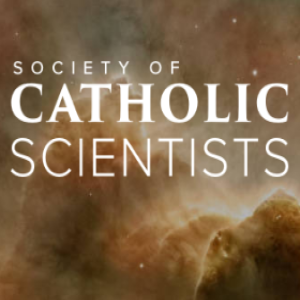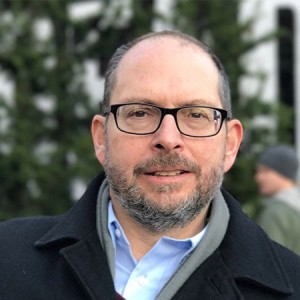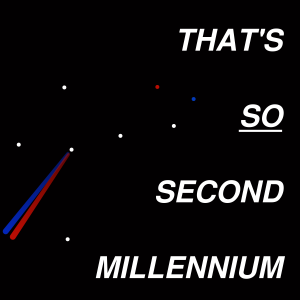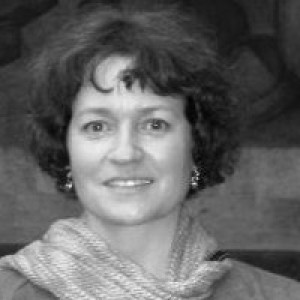Episodes

Monday Jun 17, 2019
Episode 064 - SCS 2019 Panel, part II
Monday Jun 17, 2019
Monday Jun 17, 2019
This is the second part of our panel discussion with two conference attendees, Merissa Newton, a philosophy instructor at the University of New England and Geoffrey Woollard, a cancer researcher at the University of Toronto.
[This file is vastly improved from the original version; Bill was able to provide a backup from his portable microphone.]
The individual videos of the conference talks are or will be posted soon at https://www.catholicscientists.org/ideas/theme/video-archive

Thursday Jun 13, 2019
Episode 063 - SCS 2019 Panel, part I
Thursday Jun 13, 2019
Thursday Jun 13, 2019
After laboring through some technical problems, here is our first full post-SCS Conference episode.
We had a panel discussion with two conference attendees, Merissa Newton, a philosophy instructor at the University of New England and Geoffrey Woollard, a cancer researcher at the University of Toronto.
This conference was a heady experience, and as a self-taught amateur podcaster and interviewer, I was absurdly far out of my comfort zone. Things went surprisingly well save for one critical error: I neglected to do much of any testing of my laptop and microphone before I started recording. A whole bunch of lessons I hopefully learned there... In any case, today's audio may be the worst of the conference. I had to think long and hard about whether to air this episode, or what if anything to cut. Bill had backup audio starting halfway through this episode, so feel free to skip ahead to about 17:10 to miss the problematic section.
The individual videos of the conference talks will be posted soon at https://www.catholicscientists.org/ideas/theme/video-archive

Sunday Jun 09, 2019
Bonus - Quick Hits - SCS 2019
Sunday Jun 09, 2019
Sunday Jun 09, 2019
Paul and Bill do a quick rundown of the highlights of the SCS Conference. Look for our panel discussion and interviews with conference speakers starting tomorrow!
The audio quality is definitely off on this one. Maybe a hardware issue.

Monday Jun 03, 2019
Episode 062 - Jonathan Lunine SCS Conference Preview
Monday Jun 03, 2019
Monday Jun 03, 2019
We had more insane audio problems on this episode; Paul's audio from Zencastr was unusable. I had to record a new introduction and first question, then splice in our backup recording from Zoom.
Jonathan Lunine is a prominent planetary scientist. He teaches at Cornell and is a member of the National Academy of Sciences; he has won a Urey award and holds a number of other academic distinctions. He worked with the radar and other instruments on the Cassini mission to Saturn and is co-investigator on the Juno mission now in orbit at Jupiter as well as on the MISE instrument for the Europa Clipper mission. He is on the science team for the James Webb Space Telescope, focusing on characterization of extrasolar planets and Kuiper Belt objects.
I opened the interview by asking his side of the story of the beginning of the Society of Catholic Scientists. We discuss its growth so far and how it is reaching the point where hopefully more members will become involved in planning and carrying out activities.
We discussed the overall trajectory of conference themes so far. (Remember, kids, two points may suffice to draw a straight line, but not to define a trend!) The first SCS conference topic was Origins (mostly of the physical universe). The second focused on the Human Mind and Physicalism. This third one zooms out somewhat again and covers humanity more broadly, and touches on two hot-button points:
- If we have all these distinctively human features (consciousness, free will, etc.), is there any way of knowing when in absolute, archeological/geological time those came into existence?
- Given all our biological and electronic capabilities, we can change our own bodies and brains in radical ways, and these capabilities are only going to grow. Where should we stop? What channels should these abilities be directed into, and where do the dikes belong?
Jonathan hopes that the diversity of speakers, not just from different sciences but across the science-facing pieces of the humanities, will become a hallmark of the SCS conferences: a place where badly needed interdisciplinary conversations are fostered. We discuss the difficulties inherent in our siloing, not just of academic disciplines, but of journalism, too.
Once again, SCS conference will happen June 7-9 at the University of Notre Dame. We will be providing bonus episodes during the conference as we discuss the topics and speakers with conference attendees, and will have breakdowns of the conference and speaker interviews rolling out over the ensuing weeks.
Also be sure to check the SCS website for videos of the actual talks!

Monday May 27, 2019
Episode 061 – Preview of SCS Conference 2019
Monday May 27, 2019
Monday May 27, 2019
Bill and Paul discuss the upcoming SCS conference at Notre Dame, June 7-9, on “What Does It Mean To Be Human?”
Themes we discussed:
The question of human origins:
from the natural theology perspective… when did consciousness, qualia, free will appear?
From the perspective of Judeo-Christian revelation… how do the origin stories in Genesis compare to contemporary archeology and anthropology?
The question of evolution and its significance in a universe with divine providence.
The question of human modification through bio- and electronic technology.

Monday May 20, 2019
Episode 060 – What Does It Mean To Be Human? (SCS 2019)
Monday May 20, 2019
Monday May 20, 2019
Today we continue our conversation with Stephen Barr about this year’s Society of Catholic Scientists conference, which will feature great speakers discussing the nature of humanity and its bounds in terms of time and technology. You can see a full list of speakers here and the program for the conference here.

Monday May 13, 2019
Episode 059 – Origin Story: Society of Catholic Scientists
Monday May 13, 2019
Monday May 13, 2019
We welcome Stephen Barr back to the show. We are humbled and delighted to be your podcast hosts for the Society of Catholic Scientists Conference 2019 and hopefully beyond. In that context, today we interview Dr. Barr about his experience as a writer and speaker on the relationship between Catholic faith and science that led up to an eventful conversation between himself and Jonathan Lunine. He discusses the formation of the Society of Catholic Scientists in 2016 and the conferences they immediately began holding in 2017. Credit should be given to First Things for giving him a platform to become known to the wider community, and the Lumen Christi Institute for being instrumental in putting together the logistics for the first SCS conference in Chicago.
If you are a Catholic scientist, whether a student or a graduate, there is still time to register for the Society and the conference coming up June 7-9 at Notre Dame. The deadline for registration is May 15.

Monday May 06, 2019
Episode 058 – Let’s Act Like We’re on the Winning Side (Since We Are)
Monday May 06, 2019
Monday May 06, 2019
This ended up being an emergency episode Paul recorded solo, since Zencastr ate all but a few minutes at the beginning of each recording. There seem to be serious problems with Zencastr since Paul’s MacBook died and he had to resurrect his Windows laptop.
The Big Bang; cosmology seems to require a beginning, uncaused cause
Problems of mind; intellect / qualia, possibility of free will.
There is no materialist explanation of human intellect, only assertions of dogma and crude shufflings of the feet.
Ongoing occurrence of miracles, Lourdes medical board, Fatima, Shroud of Turin; Bob Schuchts
There are far too many miracles and supernatural phenomena that defy materialist explanation: Eucharistic miracles, healings at Lourdes and elsewhere, Fatima, demonic possession…
The testimony of the first Christian disciples requires absolutely crazy explanations that themselves defy our best science even if we reject the idea that Jesus rose from the dead.
The continuing existence and expansion of the Church in the face of persecution is likewise historically unparalleled, save only for the continued existence of Judaism.
Second of all, it provides perspective and healing for human problems that nothing else does.
John Warner Wallace from Breakpoint podcast; LAPD homicide officer
What has God done in my life... we GET to that, we don't start there like Mormons
Christianity provides a shockingly direct answer to the question of evil: the transcendent, all-good God is Himself willing to experience it.
The Christian faith continues to spread in Africa and Asia in the face of continued persecution, whether of the violent or of the brainwashing variety. Why is that?
The attempts of Western society to escape Christianity have made us amazingly miserable amid all our material possessions and security. Why do we so halfheartedly turn away from these distractions?
The most characteristic failing of our age, I would argue, is addiction, and addiction has evoked a powerful response in the form of the Twelve Steps. Although these Steps are deliberately offered to everyone with no attempt made to proselytize them to any specific religion—indeed many recovering addicts refuse to identify themselves as religious—nevertheless, the principles of the Steps are completely and suspiciously consistent with Catholic Christianity.
The Catholic intellectual tradition has a tremendously formidable intellectual structure, the most robust philosophical realism, an enormous storehouse of moral philosophy and psychological insight, and a wealth of stories of human drama in the lives of both saints and sinners.
Why do we slave along as intellectual second or third-class citizens in the modern world? I was just looking at the want ads of literary agents and realized that they are all blithely “progressive” members of the stumbling, bumbling cultural vanguard. Our culture is shaped by stories forged out of this nihilistic experience of forgetting an entire civilization’s worth of wisdom.
We are looking to help out at the Society of Catholic Scientists Conference this year, and are in talks about how we can do that. We’re really excited about working to create a greater sense of community among Catholic scientists!

Monday Apr 29, 2019
Episode 057 – The Best Thing Out There
Monday Apr 29, 2019
Monday Apr 29, 2019
Apologies for the sound quality today; Zencastr wasn’t working, so we recorded on Zoom, and even then there were problems with the audio especially in the latter half of the podcast.
The question we take up at the beginning of the Easter season is this: Why has Western society gone to such pains to throw away the best thing going, intellectually and otherwise?
In his ongoing podcast research, Paul has come across the Pat Flynn Show, and listened to some really good interviews with Fr. Robert Spitzer (a TSSM interviewee) and Ed Feser (whose talk at the 2018 Society of Catholic Scientists conference was the topic of one of our most popular episodes). Bob Spitzer’s interviews in particular were some of the most inspiring things I’ve encountered recently and really led me to propose this series of conversations with Bill about how Catholic Christianity is the best way of looking at the world.
Of course, Western society has drifted hard away from its roots in classical Greek and Jewish/Christian heritage. Ireland is the most recent example of a society, one of the last to retain a semi-traditional cozy relationship between the Church and the state, now deciding to punish the Church for the crimes of the hypocritical members of its clergy by trying to erase its very history. Progressivism in general replaces traditional dogmas with dogmas-of-the-day, and the record up to this point has been pretty dismal.
We spend some time discussing the roots of what the contemporary West seems to consider its greatest achievement, modern science, in the critical tradition of Scholasticism (knowledge of which was practically the first thing to go after the Reformation began the process of intellectually punishing the Church). We would do better to have a broader memory of the Scholastic tradition even among us Catholics...to recall that it was a movement in which Thomas Aquinas was embedded, rather than remembering only him. In our time as well we don’t need single hero figures, we need a community. The scientific community knows this very well.
We go on to consider what this fraught term “dogma” really means. The Christian dogmas are really testimony, and they can’t change without repudiating the unrepeatable testimony of the events of salvation history. This is the context of the warnings at the end of the Apocalypse of John, “cursed be he who adds or takes away from the words of this book.” As Chesterton and many others have pointed out, these dogmas are not a straightjacket but a foundation and structural members that allow us to build both intellectual structures and actual human lives that don’t sink into the morass of changing human inventions. Admittedly there are many Christians, Catholics included, who seem to take comfort in the false idea that the Bible, or Tradition, provides us all the answers we could possibly want to know and there is no need or use in further growth. That is not the teaching of Jesus when he commented that the Spirit would [future] lead us to all truth.
The high Middle Ages confronted the question of harmonizing Aristotle with Jesus Christ. This was both a creative and a logical process that led to great works of criticism and synthesis… excellent practice for the scientific process as we now know it.
A reminder that the Society of Catholic Scientists Conference is approaching June 7-9. Registration is open through May 15.

Monday Apr 22, 2019
Monday Apr 22, 2019
Today we present the second half of the interview with Darcia Narvaez, social scientist at Notre Dame and a specialist in childhood inculturation, attachment, and bonding issues.
We start out this half of the interview with a discussion of what Karl Polyani called the "great transformation" of European society, involving the breakdown of the pre-modern order and its safeguards for a stable population by means of understandings about community use of land, perhaps resulting in the popularity of emigration to the New World by dispirited, dispossessed, and to some extent dangerous people.
Several times Darcia disparages "hierarchy," understood in its general sense of social stratification, which she or other who have influenced her theorize to have caused huge social catastrophes, including the corruption of the Christian Church by its integration into the late Roman state and the collapse of populations and cultures in the New World on contact with the colonizers from Europe. Late in the podcast I ask her explicitly whether there is any benefit to civilization... let us know in the comments on Facebook or Podbean what you think about the answer!
Darcia's claim is that humans are by nature more egalitarian than other animals. This goes right down to childrearing, where human children, born so completely needy, have an innate expectation that their requests for assistance will be met. She comments that there is a Native American word, "wetiko," that was used to describe an attitude thought of as akin to a sickness that characterized those who acted in an aggressive and exploitative way toward others. Whether or not premodern peoples were all more free of this, it's certainly a common feature of civilized peoples. The Old and New Testaments certainly testify to this, and the need to confront it with compassion and an egalitarian attitude. We discussed the specific example of the disease of the large organization, society, business, or government, in which those at the top are simply disconnected, both intellectually and morally, from those at the bottom.
We mentioned subsidiarity, and might have mentioned clericalism... the social science of these concepts will hopefully be fodder for future podcasts.

